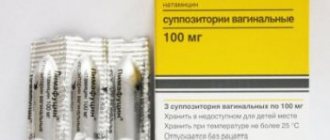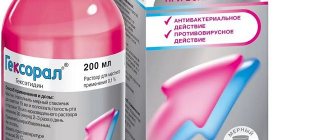The problem of infertility does not only affect women. Often there are no children in a family due to problems with reproductive function in the man. However, modern medicine offers a solution to this problem through IVF with donor sperm. This technique is considered one of the most effective in solving problems of male infertility. If the husband's sperm are not able to fertilize the wife's egg, then biological material from a donor is taken for the procedure.
Psychological problem
According to the experience of reproductive centers, IVF with donor sperm is in slightly less demand than the same technology, but when using oocytes (unripe eggs). Sometimes it is psychologically difficult for women to decide to take the step of carrying a child from an unknown donor. It is even more difficult for men to cross this barrier, but there are still enough people willing to undergo this procedure.
Many modern clinics have an extensive bank of donor sperm. Moreover, you can choose both domestic and foreign biomaterial. But there are no differences in the cell selection procedure.
Features of the donor IVF program
The in vitro fertilization procedure using donor material is considered safe. Donor candidates are carefully examined. The patient is guaranteed complete anonymity. The donor will never know who used his genetic material and how many children were born.
The quality of sperm is also carefully examined before and after freezing. Before taking the donor's sperm for storage in the bank, the donor undergoes a simple test: he donates material, which is frozen and thawed, and then the amount of mature sperm has decreased.
Candidates whose seminal fluid has become unsuitable for conception are not allowed to donate sperm.
The donor IVF program is a more expensive procedure than the standard one. However, it shows good results. Healthy women who use donor sperm to conceive are less likely to have problems during pregnancy and complications during childbirth. They rarely have children with disabilities, since candidates and their genetic material are subjected to a thorough multi-stage examination.
Who is the procedure indicated for?
A carefully thought-out program that helps childless couples have offspring - IVF with donor sperm. Indications for its use are as follows:
- If married couples, due to genetic predisposition or acquired factors, cannot produce material suitable for fertilization.
- If parents have sexually transmitted diseases.
- If a man has been diagnosed with complete infertility.
- If a man suffers from a genetic disease that is inherited.
Also considered to be an indication is a woman’s desire to have a child, but she does not have a husband or a permanent sexual partner. Usually career women resort to this kind of procedure. In this case, women do not want to start a family, and their goal is a child.
IVF with donor sperm is necessary for those couples whose attempts to fertilize their own were unsuccessful. Often a similar procedure is offered to couples who have undergone IVF-ICSI. In this case, sperm are removed from the testicles using a biopsy. When three attempts are unsuccessful, the use of donor material is required.
It is important to understand that couples who have decided and completed the entire procedure leave grateful reviews to the clinic and their doctor.
Donor selection agency
Cryopreservation is the freezing of both female and male germ cells, as well as embryos. This technique is not a novelty in modern reproductology, however, several years ago this method also had negative aspects in its use. Previously, freezing schemes were used that were based on the slow freezing of reproductive cells and tissues. Indeed, during freezing, as well as during thawing of these materials, some cellular structures could be destroyed, leading to their inferiority.
But currently, all banks have implemented the vitrification technique. The latest technology that allows you to instantly freeze cells without harm to their morphological structure. That is, potential parents should not be afraid that frozen cells may somehow affect the quality of the embryo, as well as the subsequent health of their little one.
Bank and database of donor eggs.
Cryobank or transplantation of donor embryos exists in order to provide reproductive assistance to segments of the population who suffer from a diagnosis of infertility, as well as assistance to people who have decided to donate their germ cells for the noble purpose of enabling infertile couples to feel like parents.
Cryobank carries out:
- The procedure for collecting donor material in the form of sperm;
- Collection of donor eggs from a woman who has donated genetic material.
- The procedure for selecting donor sperm in accordance with all the wishes of clients for the implementation of assisted reproductive technologies due to the inability to obtain the husband’s sperm or due to the woman’s loneliness.
- Selection of donor eggs in case of premature ovarian failure, complete absence of ovaries in the female recipient.
- Every citizen of the Russian Federation has the right to cryopreservation of his genetic material or embryo. The cryopreservation procedure can only be carried out in institutions that are licensed to perform such manipulations.
Donor agency in Moscow: indications for cryopreservation of germ cells:
- The patient’s desire to have children in the future before starting chemotherapy or radiation therapy due to cancer.
- The patient’s desire to preserve reproductive cells for further assisted reproductive technologies.
Cryobank, providing all types of services, does so on mutually beneficial terms for all participants in the process. Sperm and egg donation is a highly paid procedure through which potential donors can not only fulfill the noble mission of donating genetic material, but also improve their financial situation. Since the donation of germ cells is carried out on the terms of payment for this service.
In turn, recipients, couples who apply, a woman or a man who, for certain reasons, need donor germ cells, receive an invaluable chance to become the happiest parents. After all, a database of egg donors with a photo will help you choose exactly those cells with the help of which a child will be born, similar in appearance to an infertile couple.
The Bank selects donors in accordance with the norms of the law, which are regulated by document No. 107n of the Russian Federation. All donors of both sperm and eggs undergo a full comprehensive examination to exclude pathological conditions that impede the process of donation of germ cells. Unlike searching for donors on your own, cooperation with a bank guarantees the safety of the material used, both for the woman and for the unborn baby. After all, there are many nuances in which donation is prohibited, however, it is quite difficult for people far from medicine to understand these nuances on their own.
Why are there no children
There are a variety of reasons why a man is infertile. Often representatives of the stronger sex are very sensitive to their male health. Sometimes they blame their wife for the absence of children in the family. When the doctor finds a problem in them, the men experience severe psychological stress and may even fall into depression for a long time.
It happens that an infertile person rushes to look for the cause of this condition. Experts cite mechanical injuries sustained in childhood and illness as common factors influencing the occurrence of male infertility.
The most common cause is also non-obstructive azoospermia, when there are basically no sperm in the ejaculate. This disease is not congenital, but appears as a result of untreated inflammatory processes that are localized in the genitourinary organs. As a result, sperm mature, but cannot enter the testicles due to narrowing of the seminal ducts.
Infertility can also be caused by the complete absence of testicles. They were either removed as a result of tumor processes, or during surgery when there was a severe injury.
In what cases does a married couple need donor sperm?
Unfortunately, infertility is not only a problem for women, as is commonly believed in the modern world. For many years, a woman goes from doctor to doctor, without finding any pathology on her part. At the same time, a man, refusing a spermogram, believes that there can be no reason for infertility in the family. The percentage of male infertility is about 50. That is, almost half of the cases of inability to conceive a child are the consequences of diseases of a male nature.
The reasons for using donor sperm may be the woman’s absence of a husband or sexual partner.
The presence of genetic diseases in men, which are likely to be inherited.
Lack of sperm in the ejaculate. This is a form of male pathology that cannot be identified with the naked eye. Only by undergoing clinical and laboratory tests can one understand the reason for the lack of pregnancy, which is hidden by azoospermia, and by using donor sperm to fertilize the wife’s egg, one can overcome this annoying diagnosis that cripples people’s lives.
Such a woman contacts an agency to select a sperm donor and her egg is successfully fertilized using one of the methods of assisted reproductive technologies.
IVF with donor sperm - features
The success of the procedure is largely determined by the woman’s mood and her state of health. Therefore, before planning, the couple undergoes a thorough examination, excluding any pathologies and possible problems. If everything is in order with your health, then the procedure will be based on intrauterine insemination with biological material.
How does IVF work with donor sperm?
- To stimulate the ovaries, the egg donor is given special injections.
- When the eggs are received, they, along with the selected sperm, are sent “into the hands” of a laboratory assistant.
- The specialist prepares biological material for fertilization.
- The most mobile and healthy sperm are artificially introduced into a mature egg, and then the miracle of the birth of a new life occurs.
- Within 3-5 days, the resulting embryos should mature.
- If there are a lot of them, then some can be frozen for a repeat IVF procedure, in case of failure.
- The most complete embryos are transferred into the uterine cavity.
It is important to understand that the probability of pregnancy the first time is not too high and is only 12%. But this indicator is considered quite successful, so one should not despair.
How does IVF work?
Fertilization of an egg can be carried out in two ways: intrauterine or outside the body.
If a woman does not have reproductive problems, intrauterine insemination is performed. In this case, during ovulation, a portion of sperm is injected into the uterus using a special syringe. The procedure is carried out both in the natural cycle and by stimulating superovulation.
Important! The chance of getting pregnant the first time with intrauterine insemination is only 12%. With each subsequent attempt, this figure increases (scientists were unable to determine the reasons for this situation). Therefore, do not despair after the first failure. You need to keep trying.
If a woman is found to be infertile, fertilization is carried out outside the body. To stimulate the functioning of the ovaries, the woman is given injections. Then the eggs are removed and, together with the selected sperm, are transferred to a laboratory assistant for artificial insemination.
Fertilized eggs are left to mature for 3-5 days. The best embryos are then transferred to the uterus. The remaining embryos can be frozen to be used for a repeat procedure in case of failure.
Helpful advice! If a couple is planning more than one pregnancy, it is recommended to purchase several portions of sperm and deposit them in a cryobank. In this case, the children will have a similar genotype and phenotype.
Read more about the IVF procedure here >>>
TO CONTENTS ⬆
Possible risks
IVF with donor sperm is associated with risks for both the mother and the unborn fetus. It should be borne in mind that the donor material is not the culprit in the problems. Spermatozoa are carefully checked and only the highest quality ones are used for the procedure. The factors that cause deviations lie in the woman’s condition.
However, if we compare IVF-ICSI and the procedure with donor sperm, then the likelihood that the unborn baby will develop malformations or other anomalies is much less in the latter case.
When can spouses use donor oocytes?
Spouses can use oocyte donor biomaterial for conception if the expectant mother:
- premature ovarian failure (POF) was diagnosed;
- ovarian pathologies were identified;
- ovarian underdevelopment or other genetic problems have been identified;
- there was an impact of radiation (other physical or chemical factors) on the body;
- insufficient activity of the ovaries and eggs in the woman’s body and, as a result, unsuccessful IVF attempts.
You cannot use a donor egg if the potential mother:
- mental abnormalities were detected;
- a woman suffers from a disease that does not allow her to give birth and bear a child;
- underdevelopment of the uterus or pathology in its structure;
- tumors in the ovarian area;
- inflammatory diseases of the genital organs;
- viral or infectious diseases;
- oncological problems.
Installed protocol
A carefully thought-out procedure with a specially developed protocol is the IVF procedure with donor sperm. The requirements for the donor in this case are quite extensive and cannot be underestimated, because they were developed at the state level.
When a couple decides to undergo a procedure, they can be confident that the entire process from start to finish is under the control of legislative acts. Moreover, the donor from whom the biomaterial is taken is completely healthy and has no genetic pathologies.
Basic requirements for those wishing to become a sperm donor:
- The man must be between 18 and 35 years old.
- Before taking basic tests to confirm your physical health, you must see a narcologist and a psychiatrist to rule out psychological problems.
- An examination by a geneticist is required. Only after all the necessary tests have been carried out, a specialist can give a recommendation.
- After submitting the biomaterial, it is sent to the laboratory for examination. The results must comply with all generally accepted standards.
In the case when oocytes are used, the use of so-called fresh sperm is allowed. IVF with donor sperm involves its cryopreservation. At the same time, she remains in this state for at least six months.
After this, the biomaterial is thawed and retested. Only in this case can we guarantee the absence of pathogens of diseases such as AIDS, hepatitis and syphilis. If the results are negative, then the material is used for fertilization.
Selection of candidates
Before the IVF protocol with donor sperm, the woman selects a candidate. The first thing you need to do is contact a clinic specializing in donor infertility treatment programs.
To select the type of in vitro fertilization program, the woman is examined. Most often, when using donor sperm, insemination is performed in a natural cycle, but if necessary, pre-stimulation or egg collection for in vitro fertilization (IVF) can be carried out. More complex methods are necessary if the patient has reproductive health problems.
Specialists working with sperm banks warn their patients against scammers. Increasingly, you can find the answer to the question “how to find a sperm donor” in a search engine, indicating a personal phone number or address. Attempts to purchase biological material in this way can lead to medical and legal problems, including blackmail.
Legal aspects
You can conceive a child using donor sperm only after signing an agreement with the clinic. The donor, in turn, also enters into an agreement when donating sperm. It states that a man sells his seminal fluid and receives a reward for it.
In the future, he will not try to find a woman or her child in order to claim something.
When purchasing sperm, the patient enters into a similar agreement with the bank. She is the legal mother of the unborn baby and will not try to find the biological father. A legal document allows you to avoid controversial situations in the future. The contract guarantees the woman's rights and provides protection from the donor's attacks.
Material cost
The cost of a portion of donor material for one fertilization is from 10 to 30 thousand rubles. In metropolitan clinics, prices are higher than in the periphery. Well-known medical institutions with a good reputation have stricter requirements for donors.
The price for the procedure depends on the woman’s health condition. If the patient has no obstacles to conceiving, insemination will cost 20-40 thousand rubles. If there are problems and you need to do IVF with donor sperm, then the price will be much higher. When carrying out IVF, there will be costs for hormonal drugs, medical supervision, anesthesia for puncture and maintenance of embryos.
What information is available about them?
Recent photographs of the donor for insemination are never shown to the patient. Some clinics allow you to study children's photographs. Confidential information is the candidate's personal data and address. The choice is made according to the following parameters:
- health status;
- nationality;
- type of appearance;
- hair and eye color;
- profession and hobbies;
- personal story about yourself;
- psychological portrait compiled by a psychologist;
- voice recording and handwriting.
When choosing genetic material for insemination, a woman must understand that the unborn child may be similar to the biological father. If donation is required by an infertile couple, it is worth looking for a candidate who looks similar to the husband.
Health requirements and examinations
Before accepting sperm to the bank, the donor goes through several stages of examination. The woman can have no doubt about his health, since the seminal fluid has been in quarantine for six months. Then the sperm is examined again and only after that is it allowed for sale.
The main stages of examination of a seminal fluid donor:
- tests for HIV, syphilis, hepatitis;
- spermogram;
- fluorography;
- blood test for group and rhesus;
- smear for genital infections;
- examination by narrow specialists;
- consultation and opinion of a geneticist.
Also, the requirements for candidates require the absence of defects in appearance, the age of 18 years, and some institutions require the presence of their own healthy children.
Donor bank
If a man wishes to become an official donor, then his material must be tested for resistance to thawing and re-freezing. If the result is satisfactory, the person may be included in the official donor bank and offered ongoing cooperation.
Often married couples order material from abroad. This is done in order to eliminate as much as possible the possibility of any relationship with the married couple who decided to undergo the procedure.
Please understand that the donor may wish to remain anonymous. However, this is not necessary. It is possible to take biomaterial from a man whom the couple offers themselves. The main requirement in this case is the health and compliance of the sperm with all biochemical parameters.
Who can become a donor
They can donate their eggs:
- anonymous donors;
- acquaintances or relatives of the wife.
In this case, the potential donor must give informed written consent to the procedure for stimulating superovulation and collecting biological material.
Mandatory requirements for an egg donor are:
- older women cannot be participants in the program, the optimal age is 20-35 years;
- a woman who wants to “provide” an oocyte must have her own healthy child, conceived without the use of assisted reproductive technologies;
- average build;
- somatic and mental health;
- no risk of genetic abnormalities, no family history.
Tests for the donor
A woman who decides to become an egg donor must undergo a certain list of laboratory tests:
- group and Rh factor;
- physician's report on health status;
- examination by a psychiatrist;
- genetic examination, karyotyping, geneological;
- before each attempt at stimulation, a gynecological examination with a smear of the flora from the urethra and vagina, smears from the cervix;
- general urinalysis before any stimulation attempts;
- ECG once a year;
- fluorography once a year;
- general blood analysis;
- blood biochemistry;
- coagulogram;
- tests for HIV, hepatitis, syphilis no older than 3 months;
- tests for infections: gonorrhea, chlamydia, ureaplasmosis, mycoplasmosis, cytomegalovirus no later than six months.
Read also IVF Clinics in St. Petersburg
Desired phenotype
For future parents who decide to undergo artificial insemination, the appearance of the future baby is important. Many people want him to be as much like his mom or dad as possible. This opportunity is provided by IVF with donor sperm. Clinics that have an extensive sperm bank, which contains questionnaires with photographs, successfully select the appropriate phenotype. Experts can accurately say what traits the baby will inherit from the donor.
However, it is not always possible to see a photograph, because many want to remain anonymous donors. In this case there is also a way out. Doctors make a choice based on the following data:
- race;
- body characteristics, height and weight.
- hair and eye color;
- blood type;
- Rh factor;
- type of appearance;
- intellectual capabilities are determined based on data about the workplace and position.
Depending on the clinic, the donor base can be significantly expanded and have more complete information. Then, when selecting sperm, you can take into account the shape of the child’s nose, mouth and eye shape. Some, remaining anonymous, leave their childhood photographs, which also helps in the choice.
If the parents wish to use biomaterial from a foreign donor, in this case all possible information about it is provided. Among other requirements, parents are presented with a voice recording, a description of their abilities and predisposition to art, sports, and an IQ score.
Often parents choose a donor whose indicators are as close as possible to themselves. Similarity is important not only with the type of appearance, but also with the character. At the same time, an experienced specialist will always help the couple make the best choice.
How to choose a sperm donor for IVF without a husband
If the clinic and doctors have already been selected, then it is necessary to find a donor. Often the clinic already has its own sperm bank. In the cryobank, a portion of the sperm of the one who is suitable for the woman is selected. There are a large number of such banks in Russia. A large selection allows you to choose a donor based on different parameters - eye color, hair color, weight, height, hobbies and even nationality. Sperm is selected taking into account all wishes and requirements. If possible and willing, a woman can order sperm in Europe (it is several times more expensive).
This is the path a sperm donor goes through before its genetic material is available for IVF:
Not every man has the right to become a donor
Candidates undergo a very strict selection process. All stages are clearly indicated in the order of the Ministry of Health of the Russian Federation. Thus, out of 100 candidates, only 3 pass. Often cryobanks provide additional information, children’s photos, and a voice upon a woman’s request. Every woman strives to have a responsible, kind, sympathetic baby. Such qualities must be present in the candidate. Along with taking tests, male sperm donors undergo psychological monitoring by a psychologist.
You should definitely watch this short but interesting video. The doctor talks about who the donor child will look like and how to choose the right donor:
Program cost
Thanks to the improvement and development of medicine, even infertile couples have gained the opportunity to become parents. However, the cost of the IVF procedure is quite high (from 100 thousand rubles), so not everyone can afford to pay for it. The specific price varies significantly and depends on the status of the clinic and location.
Unfortunately, IVF using compulsory medical insurance with donor sperm is not yet available in our country. But, a married couple will be able to take advantage of government support for infertile couples, and all services related to examinations and tests will be paid for by the insurance company. You will only need to pay for the use of donor biological material yourself.
How to make the right choice?
Having decided to use a donor egg to conceive, infertile couples are asked a lot of different questions. For example, “Where and how to find a suitable donor egg?”, “What is the cost of conception using a donor egg?” and “Are there special bases where egg donors are collected?” In this article we will try to answer these and a number of other frequently asked questions regarding this topic.
So how to choose an oocyte donor? Before proceeding with IVF using a donor egg, a man and a woman must independently answer some important questions before going to the clinic. For example, do they want to see a photograph of a potential donor, or use his biomaterial, based solely on information about eye and hair color, weight and height. According to statistics, approximately 80% of couples express a desire to find out what their individual donor looks like, and the remaining 20%, on the contrary, want to remain in the dark so as not to further associate the appearance of their future baby with the appearance of the egg donor.
Ask a Question
How to choose an egg donor for IVF? Be that as it may, such a step is extremely responsible and important, and haste is clearly not appropriate here. When choosing a professional anonymous donor, you should first carefully weigh this decision, since the quality of their eggs is not always at the highest level, since ovulation stimulation in them is usually carried out at minimal intervals. If you choose a personal donor, you literally receive the donor eggs as your own and can be sure that only you will be able to use them.
Reviews from married couples
Those who have done IVF with donor sperm quite often leave reviews about the clinic and its specialists.
IVF Mom Clinic. Patients note an extensive donor base. In this case, not only the man is examined, but also his parents, which excludes genetic pathologies. It is important for women that the donor profiles are complete, there is all the data about the character, a photograph and a voice recording. Reviews often mention that there is access to the largest foreign bank of donors.
Negative reviews include some intrusiveness and the inability to get acquainted with the donor bank without participating in the program.
Altravita Clinic. IVF with donor sperm reviews in this clinic are mostly positive. Couples like that they can join an all-inclusive program, which includes the cost of donor sperm. You can also use the services of insurance companies by paying for the use of biomaterial. The downside is the inconvenient working hours.
"Nova Clinic" Reviews note the affordable prices and correctness of all medical staff. Married couples like that specialists explain everything in detail and help them choose the optimal donor. The doctors are attentive, explain the procedure in detail and answer all questions. One of the disadvantages is the inability to view a photograph of the donor, but the result is always satisfactory.
Selecting the qualities of a woman whose donor egg will be used during IVF
One of the first things you pay attention to when choosing a donor is appearance. Naturally, most parents want their child to look like them. If your family members have mostly brown eyes and fair skin, you will probably want the donor to have similar appearance. It is also very common and quite normal that most infertile couples want the donor to be attractive. Can you see pictures of egg donors? Yes, some clinics and agencies provide this opportunity. In some oocyte bank clinics, photographs of donors as children or photographs of their children are available for viewing. If you have access to such images, you have the opportunity to imagine what your baby might look like. If the appearance of the donor is not very important to you, then this will greatly simplify and shorten the search process for you.











